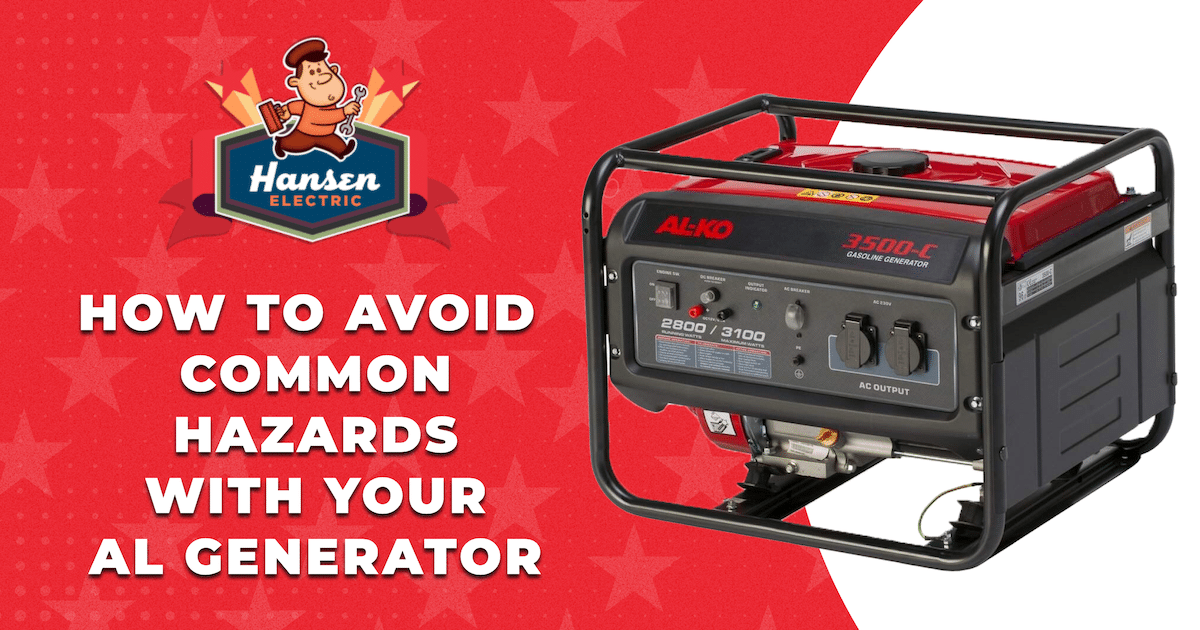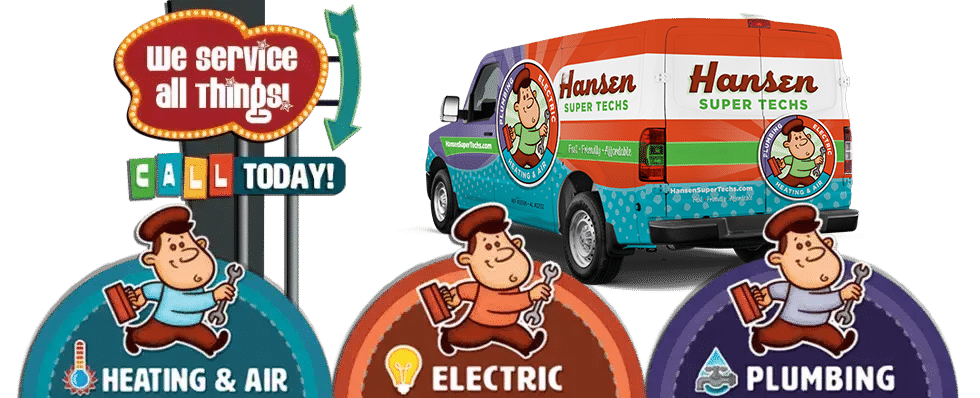How to Avoid Common Hazards with Your AL Generator

Using a generator in your AL home can be hazardous if you don’t follow safety precautions. The greatest risks include carbon monoxide (CO) poisoning, shock, electrocution, or fire. Between 2005 and 2017, over 900 people died of CO poisoning from portable generators, and thousands more were injured. Whether using a portable or home backup generator, you can avoid common hazards and reduce the chances you or someone in your home will be injured.
Avoid Carbon Monoxide Exposure
A generator should never be run indoors, no matter what type you use. If operating one in a confined space like a basement or garage, carbon monoxide can build up. A portable unit should be placed at least 20 feet away from a house; standby generators should be mounted at least five feet from the structure. Engine exhaust should also be vented away from doors and windows.
If using a generator to power the lights and appliances in your home, make sure carbon monoxide detectors are installed on each level and near each bedroom. There is no color or odor to CO gas. It can be deadly in high concentrations, but an alarm will wake your family up and alert them to get to safety.
Also know the symptoms of CO poisoning, which include:
- Headache
- Dizziness
- Nausea
- Vomiting
- Fatigue
- Weakness
- Chest pain
- Shortness of breath
- Confusion
- Muscle pain
- Loss of consciousness
Some generators monitor CO levels and will turn off automatically if necessary. Consider looking for a unit with this technology.
Install a Right-Sized Generator
Don’t install a generator too big for your home to handle. It can overload your electrical system and cause shorts, electrical damage, and fires. Standby generators are rated in amps, which are calculated by dividing watts by volts. Determine the capacity of your entire home (knowing the power requirements of lights, equipment, and appliances) to figure out how many amps are needed; and factor in the excess power draw when a generator starts up. Also be careful not to install too small a generator that won’t meet your electrical needs.
Choose How to Fuel Your Generator
Some home generators run on propane, which is stored in tanks. You’ll need room for these tanks and to change them when empty. Another option is to connect the unit to a natural gas supply line. Once it’s connected, there’ll be a steady flow of fuel when it’s needed, with no hassle or danger of handling propane tanks. If using propane or gasoline, make sure to store it properly in a cool, well-ventilated place, in an ANSI-approved container and away from any heat source.
Place the Generator on a Dry Surface
Touching a wet generator risks shock and electrocution. When placing the generator, make sure water cannot reach it and there’s no nearby drainage that can expose it to water. Always dry your hands before touching the unit. Power cords should also be kept away from water. When running a cord, make sure it won’t sit in a puddle after it rains. If a generator must be installed in an exposed area, buy a tent that shields it from the rain.
Don’t Install a Generator Near a Work Area
Any generator can produce noise and vibration, and portable units are notorious for this. They are loud enough to cause hearing damage, while excessive vibration can cause fatigue. Keep the unit away from frequently used rooms or areas you normally work, sleep, or relax.
Don’t Plug the Generator into a Standard Home Outlet
Also known as backfeeding, this can cause electrocution to not only people in your home, but utility workers and neighbors. Generators aren’t designed to be plugged into electrical outlets. Doing so bypasses circuit protection mechanisms and the unit can easily overload wiring and circuits.
If using an extension cord, only use a heavy-duty one rated for outdoor use, make sure its wattage rating exceeds the total wattage of all connected appliances, and check that it’s free of tears or cuts. It should also have three or four prongs. Better yet, install a transfer switch, which connects the generator to your circuit panel. This avoids the need for extension cords and helps avoid overloads.
Call Hansen Super Techs
In Alabama, you never know when a storm or other event will cause a power outage. Hansen Super Techs installs high-quality generators from Generac. You can also depend on us when you need generator service in Mobile such as 24/7 repair or maintenance. For a free estimate, contact Hansen Super Techs today!


